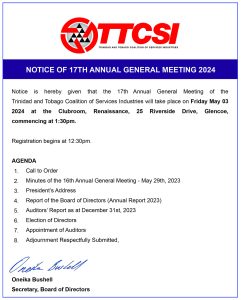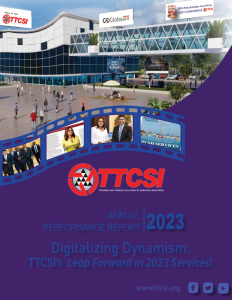ADDRESS BY
THE HON. STEPHEN CADIZ
MINISTER OF TRADE AND INDUSTRY
AT THE LAUNCH OF
ICT INNOVATIONS FOR THE MASQUERADE INDUSTRY OF TRINIDAD AND TOBAGO
6:00 PM
THURSDAY 28TH OCTOBER, 2010
THE FESTIVAL BALLROOM
CROWNE PLAZA HOTEL
WRIGHTSON ROAD
PORT OF SPAIN
· The Honourable Wade Mark, Speaker of the House of Representatives
· Mr. Iwan Sewberath Misser, IDB Representative, Trinidad and Tobago
· Mr. Nirad Tewarie, CEO, Trinidad and Tobago coalition of Services Industries (TTCSI)
· Mr. Mahindra Satram-Maharaj, Chairman, NCDF
· Ms. Dionne McNicol, CEO, Trinidad and Tobago Entertainment Company Ltd
· Mrs. Joan Yuille-Williams
· Members of the Business Community
· Members of the Media
· Ladies and Gentlemen
It is indeed a pleasure to participate in the official launch of this innovative project for the development of the local carnival industry; because it signals the understanding that Carnival is not just about entertainment and enjoyment, it is a serious business.
But let me begin by assuring you that you will never hear “robber talk” from our government. We say what we mean; we mean what we say; and we always follow our words with action.
Our commitment to the cultural and creative industries is real and we are committed to empowering these sectors to rise and take their place as leaders of our economic diversification thrust.
I would like to congratulate the Trinidad and Tobago Coalition of Services industries (TTCSI) and the National Carnival Development (NCDF) for submitting a winning proposal to the Inter American Development Bank (IDB). This is indeed a significant accomplishment as this project was chosen from among more than 400 other proposals, from 21 countries in Latin America and the Caribbean. Both organisations must be commended for their initiative and vision in seeking to help those involved in Carnival better manage its business and trade aspects.
Ladies and gentlemen, we often hear catchwords such as creativity, knowledge, innovation and technology being bandied about in the media by policy makers, businessmen, scientists, and technocrats. Indeed these form the underpinning of a ‘knowledge-based economy’. In today’s contemporary world these are very real, very powerful drivers of economic growth and international competitiveness.
There is a term now called the “Creative Class” which moves the traditional definition of creativity beyond artists, actors, entertainers, fashion designers, film makers, etc., to encompass architects, software designers, videogame creators, media production houses, electronics engineers, in fact virtually any endeavour which involves the use of technology married to the application of intellectual capacity.
The economic power of this group of people must be fully understood and acknowledged, as these are the drivers of the new economy. While in the developed world the creative class is fully grounded in the reality of business and economics, we still have not wrapped our minds around the concept of creative output as a viable industrial activity.
A familiar business saying is “Innovation equals creativity plus risk”. Nothing could be more true or apt in our circumstance. Creativity by itself results in no tangible output unless it is merged with business, investment and risk taking.
With creativity as a common thread, these areas are woven together into the tapestry of what we know as the creative industry. This industry comprises intellectual capital as the primary input, the cycle of creation and application of technology, which then generate production and distribution of goods and services that meet the needs of the market.
Though Trinidad and Tobago continues to enjoy the benefits of an energy based economy, our country must move away from dependence on this finite resource base. In this regard, the creative industries, into which culture is a primary input, can become a significant revenue earner for our country. For too long has the potential of this industry been underestimated and as a result overlooked by mainstream development pundits. The services industry accounts for over 50% of this country’s GDP and is very important for our economy.
According to preliminary figures published by the United Nations Council for Trade and Development, UNCTAD, over the period 2000-2005, trade in creative goods and services increased at an unprecedented average annual rate of 8.7 percent. World exports of creative products were valued at $424.4 billion in 2005 as compared to $227.5 billion in 1996.
Investment in these industries therefore offers new opportunities for developing countries such as us to leapfrog into emerging high-growth areas of the world economy. To achieve this T&T must find ways to optimize the potential of this sector.
We must continue to nurture our creative capacities, be innovative and enhance the competitiveness of our creative goods and services in world markets. To this end, we are continuing our support for the film and entertainment industries, as well as, actively pursuing the development of the fashion industry.
The Carnival Industry, in particular its masquerade component, represents a significant proportion of the creative industry capacity of T&T. It is highly labour intensive and directly fuelled by the creativity, ingenuity, and rich culture and history of our people. I have always marvelled at the amount of creativity that can be found in a small island nation such as ours; we have been able to create many different kinds of music – soca, rapso, etc. – and of course we also created the steelpan, the only new acoustic national instrument to be invented in the 20th century. We are a brilliant people, ladies and gentlemen.
To preserve this heritage and generate greater levels of revenue, it is imperative that the industry be able to adapt and become more competitive, self sustaining and attractive to future generations. We have to be very mindful of the future generations.
It is in this context, that this project can make a significant contribution. One of its core aims is to equip businesses in the industry with the necessary tools for successful enterprise development: the business models, managerial capability, technology and profit-focussed attitude; the key success factors possessed by the dominant players in the world industry.
I had mentioned before that the outputs of the creative industries are goods and services which meet market needs. This is often a touchy point however the reality is that a product or service which does not meet or exceed market or consumer demands is of little value in the world of business, no matter how “creative” the process which led to its creation. So we have to find ways and means of making this happen.
For too long our Carnival product, while meeting the needs of nationals most of the time, has proven difficult to market and while there have been sporadic successes by individual bandleaders at the various Diaspora Carnivals, the full potential of this gigantic festival still remains untapped. Perhaps the next step here is to examine closely the actual product itself and restructure it based on solid market research and feasibility studies.
Development of the industry’s human and technological infrastructure as well as the increased capacity building of Micro, Small and Medium Enterprises, as described in the project, will increase professionalism, dynamism and innovation in the industry.
MTI believes that connectivity generated by the introduction of the web platform, will allow for a greater degree of cohesiveness and organisation among the fragmented actors in the industry. This is the directions in which the whole world is going and the direction in which we have to go as well.
Pooling of production capacity will allow the industry to export its services on a much larger scale to the Diaspora carnivals, and so allow Carnival industry operators to take advantage of the opportunities available through the various trade agreements we have in place.
This would include the recently concluded Economic Partnership Agreement with the European Union which incidentally has a component devoted to services and the creative industries. Companies can thereby benefit from economies of scale, making them more competitive and also provide year long employment for persons in the industry.
Through the E-commerce features of the platform, consumers will also benefit from the convenience of being able to purchase carnival products online. From the portal, they should also be able to access complementary services such as car rentals, hotels, tour operators, restaurants, and thus contribute to further development of the hospitality industry.
This consumer-focused approach is essential if the industry is to remain competitive and attractive, especially to its international clientele.
Ladies and Gentlemen, these concepts of connectivity, streamlining and efficient delivery of services are not new to the Ministry of Trade and Industry (MTI). In fact they represent the guiding principles behind one of our major initiatives – the Single Electronic Window, known as the SEW. The SEW is an IT platform, a trade facilitation tool being developed by the MTI in conjunction with CrimsonLogic of Singapore. The SEW will make doing business in T&T much easier. I should also mention that electronic payment legislation is to be brought to the Parliament very soon.
The creative industry is made up people from all walks of life and we need to place more importance on this industry. The MTI is aware that the creative industries can generate important linkages within the overall economy, if effective policies are in place. In this regard, MTI pledges to do its part to facilitate the continued development of this industry. I once more commend the TTCSI, the NCDF and the IDB for their vision and wish them all the best in this and future endeavours.
I thank you.





